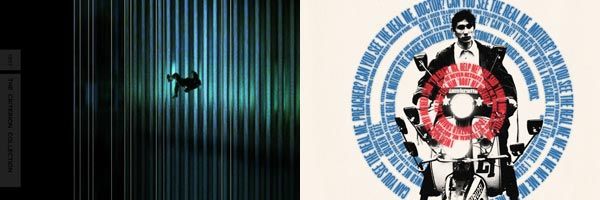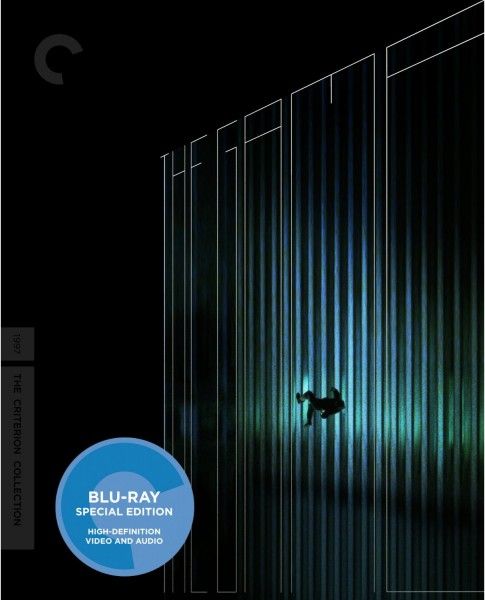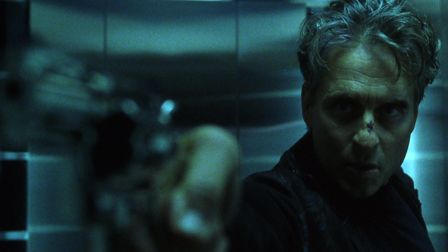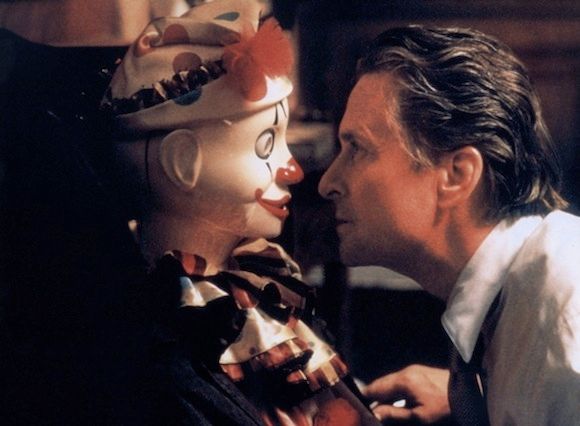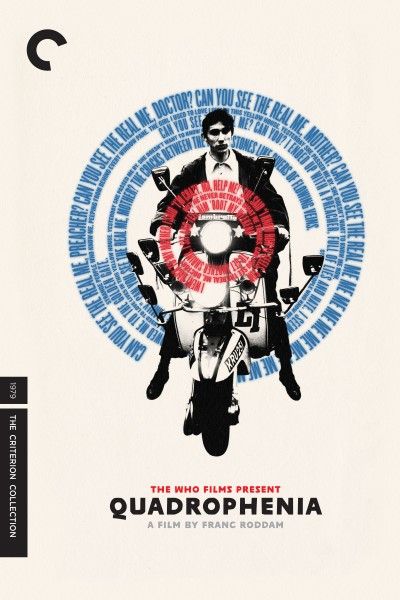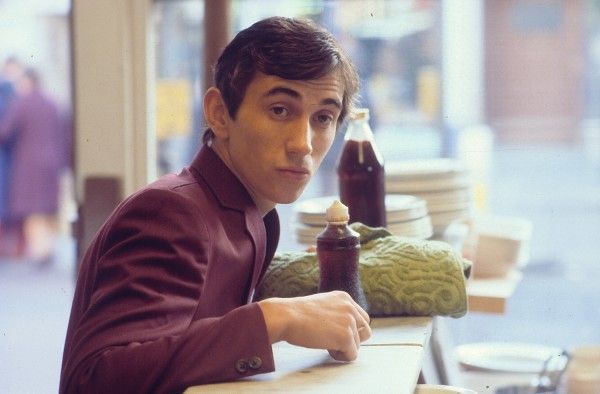Criterion always delights, and recently they’ve put out two cult classics: David Fincher’s The Game, and Franc Roddam’s Quadrophenia. The former stars Michael Douglas and Sean Penn and came between Se7en and Fight Club in Fincher’s career, and as he made it for a studio (Gramercy) that wasn’t long for distribution it led to it having a tortured home video history - hence it’s cult status. The latter features a soundtrack by The Who, but didn’t star them, so it’s known mostly by fans of the band. Our reviews of both movies on Blu-ray follow after the jump.
The Game follows Nicholas Van Orton (Douglas), who seems to be one of those Tom Wolfe “master of the universe” types. He’s currently trying to leverage a deal on a children’s book publisher because they didn’t make their numbers when his birthday comes up. His brother Conrad (Penn) tells him that he got him a birthday gift this year which is special. It’s a trip to Consumer Recreation Services (CRS), which will give him the ultimate gift. Nicholas is also reminded that his current birthday is the same age that his father committed suicide.
Nicholas goes to their facilities, and goes through a series of tests that eat up his day. He’s then told that he wasn’t accepted. Through this testing process and his rejection we get to learn about who this character is, outwardly presenting a confidence that is mostly a bluff. But when he gets home one night he finds a clown in his driveway in the same position as his father’s body was found, and the game is on. But what is the game, and how much of what’s going on in the game is a game? He thinks he’s found some help in a waitress named Christine (Deborah Kara Unger), but she may be with CRS as well.
The problem with con movies in general is that the viewer - when brought into a confidence game - is made acutely aware of the machinations of what information is being presented. As the characters are trying to stay one step ahead of the possible mark, the audience is trying to stay one step ahead of the plot. It can turn a movie into a guessing game, which can often lead to less than enjoyable results – trying to figure something out means either you were smarter or dumber than the movie, neither of which is usually satisfying. But the work here takes that to the next level, by showing that the game is very similar to a movie. Whether you invest in the character as a real person, or just view the problems he comes across as part of a film narrative, the film still works. Part of that is the artistry of David Fincher, and it’s fascinating that it’s probably his most hopeful film. How does one change one’s life, how does one fall out of habits that will eventually destroy you?
This also allows the film to circumvent the normal class issues that become apparent in a film like this. Nicholas Van Orton is worth millions, but you can either root for him to figure things out or enjoy the fact that the 1% is being tortured. You can also fall into the world of the movie, trying to figure out how much of what’s planted are clues for the future. And as Fincher directs our interest in part of the frame, so we see Nicholas look in the same way. The Game is like a hybrid of It’s a Wonderful Life with something like Christopher Nolan’s The Prestige, as Nolan – like Fincher – is acutely aware of how the audience is aware of the mechanics of what’s going on, and are looking for any tells. The Game is a movie about movies, but also about how movies can make us understand different perspective, and the power of a great narrative to change people’s lives.
Criterion released The Game on Laserdisc a long time ago, and they’ve replicated all of those supplements. Unfortunately they produced zero additional content, and it would have been nice to see someone reflect on the film fifteen years after that content was produced – particularly David Fincher. That said, the presentation is immaculate. The late, great Harris Savides shot the film, and he supervised the transfer, which is presented in widescreen (2.35:1) and in DTS-HD 5.1 master audio. Actually there are two 5.1 DTS-HD tracks, one which replicates the theatrical experience, and one done for home viewing. The film also comes with a commentary by Fincher, Michael Douglas, screenwriters John Brancato and Michael Ferris, digital animation supervisor Richard Baily, production designer Jeffrey Beecroft and visual effects supervisor Kevin Haug. Even though this track is nearly fifteen years old, commentary tracks for laserdiscs never had the same sort of boring sensibilities that have come to dominate commentary tracks of late, and it’s focused, and people are honest about their work in a way that is refreshing these days.
The film comes with an alternate ending (1 min.) that is more definitive, but less interesting. There are four “Film to Storyboard Comparisons” for the Dog Chase (4 min.), The Taxi sequence (3 min.) Christine’s House (4 min.) and The Fall (1 min.). There’s also behind the scenes footage for five sequences in the film with optional audio commentary (38 min.). The psychological test film from the movie is presented in full (1 min.) and the film’s teaser and theatrical trailer are included, both with commentary tracks, with the trailer featuring Fincher commentary. There’s also a teaser render test (1 min.), as the images in it were all done with CGI. The trailer commentary by Fincher is an all timer as he talks about how you can’t make a movie like this without showing an audience “every f*cking car crash.”
Quadrophenia is a fascinating film in that it applies a very working class vision of England to a phenomenal soundtrack. Where The Who’s Tommy might have had some of those working class elements, they were also wedded to a story about a deaf, dumb and blind kid who could sure play a mean pinball. The film of Quadrophenia is about a young kid who’s a mod in 1965, and there’s nothing all that special about him. Mods were the fashionable types, a dandified look that bordered on bisexuality (the men wore make up), and were at odds with Rockers, whose look was inspired by films like The Wild One, and they favored leather and rockabilly. The film stars Phil Daniels as Jimmy, who has a crap job, a girlfriend he doesn’t care about, and a crush on Steph (Leslie Ash) who he hopes to forge a connection with. He runs into an old friend Kevin (Ray Winstone) in a bath house, and doesn’t realize until they’re dressed that he’s a rocker, which starts up their friendship again, only for it to quickly flame out due to their clashing sensibilities, and it ends badly for both.
Jimmy doesn’t get along with his parents, and is often taking pills, but things perk up when he takes a bank holiday trip to Brighton, where the mods and the rockers escalate their clash and which turns into a riot. This gives Jimmy and Steph a moment together, but then he’s arrested by the cops. Ace-Face (Sting) is the defacto head mod, and he quickly buys himself out of trouble, but the incident costs Jimmy his job. Forced to face so much of what his life made up of sucks, he returns to Brighton, only to discover that his biggest hero is a fraud.
Though the music brings in the flights of fancy and delights of the film, this is very much a kitchen sink drama that seeks to get into a very British depression. Jimmy is presented as at a dead end, he’s got no real dreams for anything other than love, and the film shows his dreams getting dashed repeatedly, so much so that the film ends on a note that can be read any way the viewer wants to read it. Perhaps Jimmy has evolved, perhaps he’s sunk so low that he can’t even finish the job. We see no repair.
It’s a fascinating film, but one in which the music - which is so beautiful, and one of my favorite Who albums – gives a great pulse to the material. This is an angry young man film, and it’s meant to speak to that audience. It lacks the fun of something like American Graffiti or the like, perhaps with America’s great expanse there is a greater sense of getting away. In Quadrophenia it feels like there’s no escape.
The Crtierion Collection presents the film in widescreen (1.85:1) and in 2.0 Stereo, and in a newly remixed 5.1 DTS-HD surround track. Picture and sound quality is excellent. The print shows wear throughout, but the color and definition is incredible, and a marked improvement over the previous releases. The film comes with a commentary track by director Frank Roddam and DP Brian Tufano, a period TV piece from the show “Talking Pictures” (26 min.) which goes behind the making of the movie, two French TV pieces from the 1960’s on Mods and Rockers: “Sept Jours Du Monde” (8 min.), on Rockers, and ‘Seize millions de Jeunes” (35 min.) on Mods, which features footage of The Who performing. There’s an interview with Bill Curbishley (14 min.) – The Who’s manager in the 1970’s – and he talks about the band wanting to make movies and the making of this film. The Who’s Sound engineer Bob Pridden (8 min.) is also interviewed to talk about his relationship with the band, the new remix, and he offers a demonstration of the restoration and new remix where the difference is night and day. Two trailers are also included.

